Françoise Thom’s last book « The Backward march, a look at Soviet and Russian history » (Sorbonne University Presses) was awarded the François Guizot-Institut de France Prize. This prize, reserved for historians, rewards a work of history, the study of the contemporary world, societies or political analysis recently published or disseminated, accessible to a wide audience by the most prestigious French institution, the Institut de France.
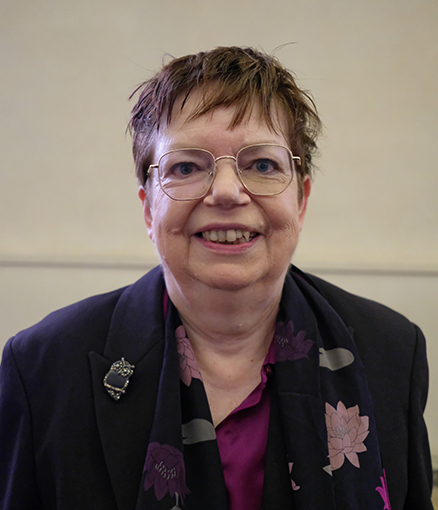
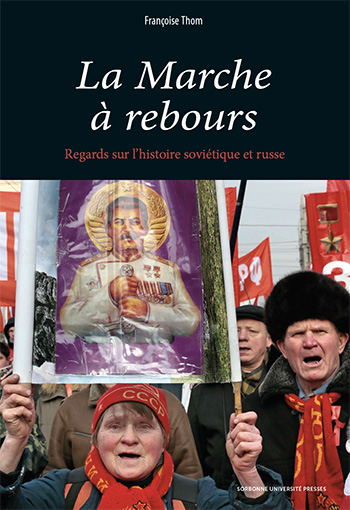
While showing the radical novelty of Bolshevism, and Stalin’s techniques for enforcing his tyranny, « The Backward march, a look at Soviet and Russian history » written by Françoise Thom highlights the continuities of Russian history and its constants (ideology, power practices, place and influence of the empire, foreign policy concepts and methods, use of propaganda). The opening of the USSR archives and their abundance has enriched our knowledge of this once closed world and makes certain keys to understanding indispensable: they will also facilitate the approach to post-communist Russia and its difficult past.
Speech by Stéphane Coste, President of the François Guizot Association — François Guizot-Institut de France Prize, Paris, October 4, 2022 — Sources : Institut de France & François Guizot Association —
Table of Contents
This fifth edition of the François Guizot-Institut de France Prize
Mr. Chancellor,
Mr. Perpetual Secretary,
Mr. Chairman of the Jury,
Mr. Vice-chairman of the jury
Ladies and Gentlemen members of the jury of the François Guizot-Institut de France Prize
Ladies and Gentlemen,
Dear friends,
Dear Laureate,
As a preamble, I would like to remind you that this day fully associates us with François Guizot since he was born on October 4, 1787, exactly 235 years ago.
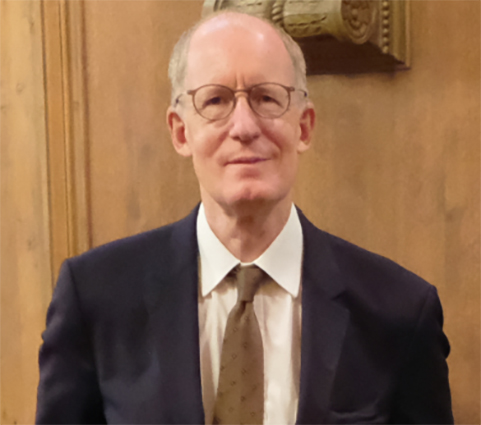
This fifth edition of the François Guizot-Institut de France Prize is a major event for the members of our association and for the descendants of François Guizot.
We thank Mr. Xavier Darcos, Chancellor of the Institute, for welcoming us this evening in the historic setting of the Institut de France, to which Guizot was very close.
We thank the members of the jury, and more particularly its president Michel Zink and vicepresident Patrice Gueniffey, for the quality of their work, which has enabled us to celebrate Françoise Thom’s book, La marche à rebours; regards sur l’histoire soviétique et russe (The Backward march, a look at Soviet and Russian history), for 2022.
Stéphane Coste — Photo © DR
Dear Laureate, we congratulate you on being the fifth recipient of the François Guizot-Institut de
France Prize for your book.
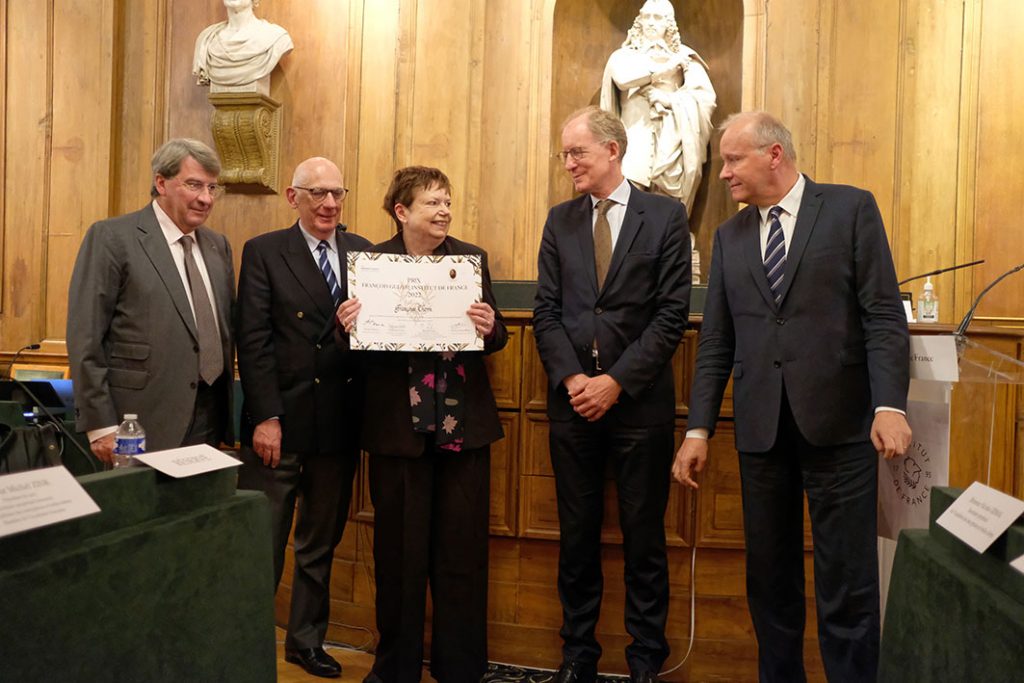
Understanding Russian’s vison of the World
Your book is a major contribution to the understanding of Russia’s vision of the World, in particular through the doctrine of Eurasism. It is also at the heart of current events in the light of the Russian-Ukrainian war, which has already lasted for more than seven months.
I would like to make some connections between some of your chapters and François Guizot. In your remarkably clear chapter on the South Caucasus states (1917-1921), where the local geopolitical situation was and still is very complicated, as the recent deadly exchanges between Armenia and Azerbaijan show, I made a comparison with the Oriental crisis (1839-1841). The latter pitted the Ottomans, supported by the Europeans overall, against their Egyptian vassal, Mehemet-Ali, who was supported from afar by the French although the latters were in fact neutral in this story. In what would later become Lebanon and its complexity, each protagonist used to his advantage, even accentuated local rivalries and reversals of alliances, mainly between the Maronites and the Druze, before the English troops blew the whistle on the end of the game. Guizot, an Anglophile and newly appointed Minister of Foreign Affairs on his return from London, helped to resolve the crisis. A large portrait of Mehemet-Ali can be seen in the entrance
to Guizot’s family home at Val-Richer in Normandy.
The collapse of the communist bloc
In your excellent section on the collapse of the communist bloc and the relative disorder that followed before the advent of the Putin era, one can only draw a parallel with the revolution of 1848 leading to the departure of the king and the Guizot government. But also the subsequent advent of an authoritarian power first as President and then as Emperor represented by Napoleon III. We could also make the same comparison with the October 1917 revolution and the advent of the Bolshevik regime.
I would have liked to be able to present you with Guizot’s opinion on the doctrine of Eurasism but unfortunately, Russia was not his priority even if he followed what was happening in the country because of his functions and his attachment to the Princess of Lieven, former wife of the Russian ambassador in London and herself of Baltic origin. According to Laurent Theis, whom I would like to thank, he seemed to consider that Russia was part of the European concert. Asia seemed very far away.
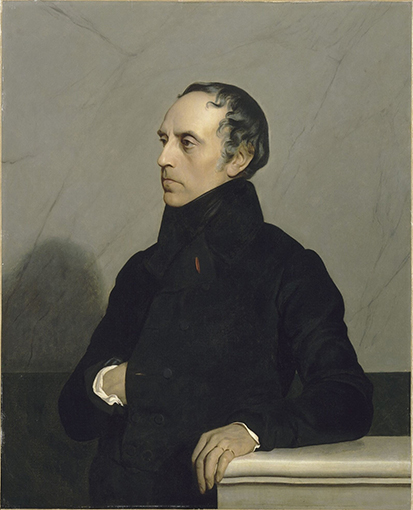
In addition to the Guizot-Institut de France prize that we are awarding this evening, the Association François Guizot is activating other tools in order to bring to the attention of as many people as possible the immense intellectual and cultural heritage of François Guizot that spanned the 19th century.
Thus the website www.guizot.com brings together all the elements of his life and work. It is regularly updated to be the reference point on François Guizot.
François Guizot painted by Jean-Georges Vibert after a portrait by Paul Delaroche.
Similarly, since January 2020, more than one thousand five hundred letters from the correspondence between François Guizot and Princess Dorothée de Lieven between 1836 and 1857 have been available to all via the guizot.com website under the direction of Marie Dupond, who is in charge of this project.
They provide a better understanding of European diplomatic relations in the mid-19th century.
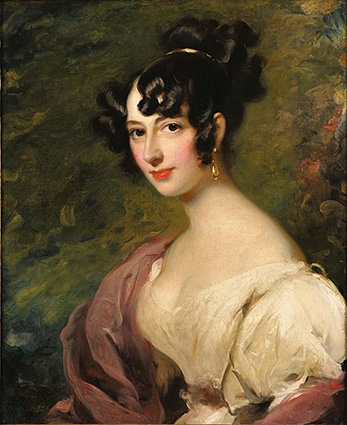
Finally, we would like to remind you that our sole objective is to make Guizot’s works as accessible as possible to our family, researchers and the general public.
Stéphane Coste
See also:
- Discours de Xavier Darcos, chancelier de l‘Institut de France — (2022-10-04) —
- « Prix Guizot -Institut de France 2022 : And the Winner is… Françoise Thom » : Allocution de Stéphane Coste, descendant de François Guizot et président de l’association François Guizot — (2022-10-04) — English pdf version of Stephane Coste’s speech — « The François Guizot-Institut de France Prize 2022 » — (2022-10-04) —
- « La Russie d’avant, la Russie d’après, c’est la Russie de toujours » — Discours de Patrice Gueniffey & « Russia, Forever the Same ? » — Speech by Patrice Gueniffey, vie-president of the jury — (2022-10-04) —
- « Westerners Have Great Difficulty in Perceiving the Reality of the Totalitarian World » : Speech by Françoise Thom, winner of the Prix François Guizot-Institut de France 2022 — & « La Russie d’avant, la Russie d’après, c’est la Russie de toujours » — (2022-10-04) —
- « Russie : Pouvoir autocratique et logique léniniste: Qui va éliminer l’autre ? » — Réponse de Françoise Thom, lauréate du Prix Guizot-Institut de France — « Westerners Have Great Difficulty in Perceiving the Reality of the Totalitarian World » — Speech by Françoise Thom after she was granted the Guizot Price — (2022-10-04) —
- Voir également : « Françoise Thom, La marche à rebours. Regards sur l’histoire soviétique et russe » par Andreï Kozovoï in Cahiers du Monde Russe 63/3-4 | 2022, 863-866 — (2022-1202) —










